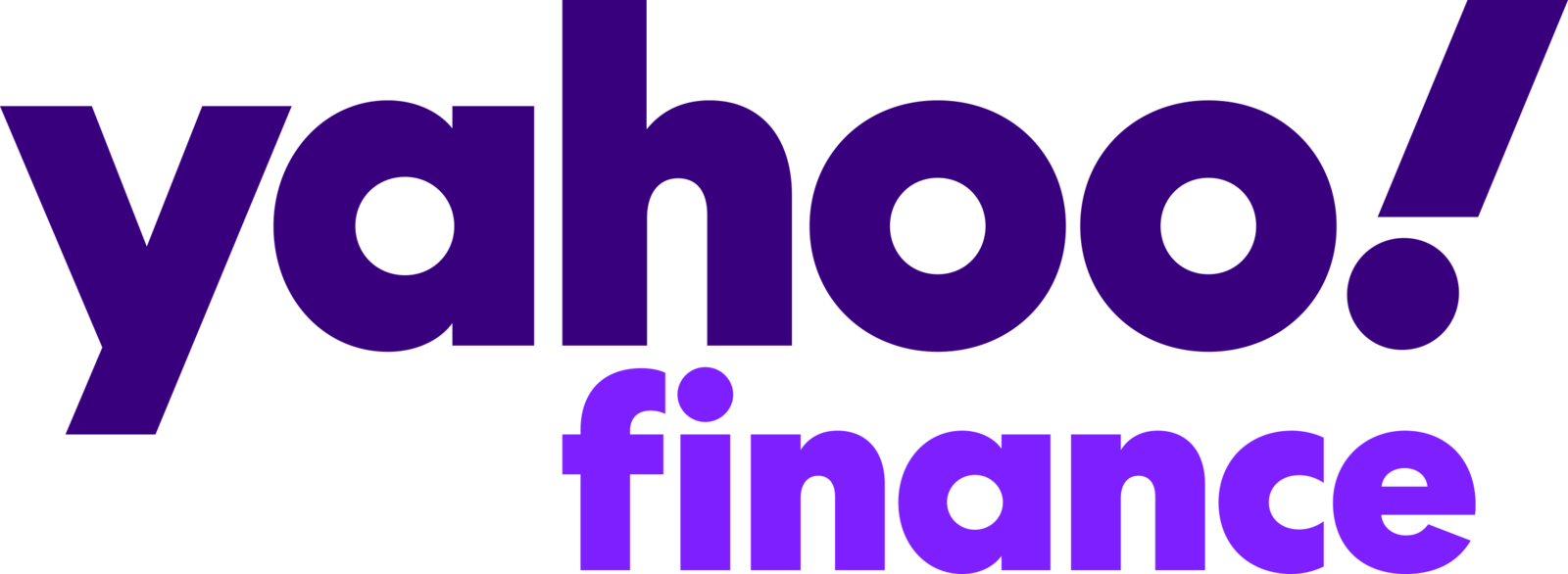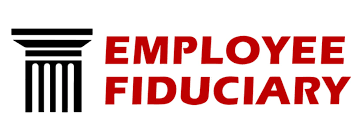Our Top 401(k) Plans for 2023
- Low-cost robo advisor solutions
- No account fees to open a Fidelity retail IRA
- $0 account minimum
- Strong customer support
- $0 fees per trade
- $0 account minimum
- Commission-free stock, options and ETF trades
- Above-average mobile app
- $0 fees per trade
- Large investment selection
- $0 account minimum
- Commission-free stock, options and ETF trade
- Account minimum $3,000
- Management fee of 0.15% of assets anually
- Individual taxable, Roth IRA, traditional IRA, rollover IRAs and eligible 401K plans
- Invest in real estate, blockchain, startups, and more
- Traditional IRA, Roth IRA, SEP IRA, Solo 401(k), and more
- Set up online in less than 10 minutes
- No cost cash transfers from current custodian
Important
As seen in






How to Compare the Best 401(k) Companies
Compare management fees for 401(k) plans
Some 401(k)s require account minimums
Click Get Started to sign up.
What Are 401(k)s?
401(k)s are retirement plans offered by employers that qualify for tax benefits. Employees have many investment options with the common ones being mutual funds and index funds.
There are two different types of 401(k) accounts: Roth 401 (k)s and traditional 401(k)s. You may split contributions between both types of accounts, as long as you stay within the maximum contribution for the current year ($19,500 for 2021).
Traditional 401(k)s offer tax advantages and SIMPLE 401(k) plans have been created as a cost-effective way for small businesses to offer a savings plan to their employees.
Benefits of 401(k) Plans
Our Top 401(k) Providers
A 401(k) is not only for large employers; even as a small business, you may want to offer this savings plan to your employees.
When you're looking for the best 401(k) providers for your company, you should consider all the factors that make it a good plan, like whether it's stable and how it is funded.
Small business 401(k) plans are specifically made for small businesses and we have a list of the best 401(k) plans to meet your needs.
- Best for low operating costs:
Charles Schwab - Best for low-cost fund options:
Vanguard - Best for consultant services:
Fidelity Investments
Comparison of Employer-Sponsored Retirement Plans
| Type | Best For | Eligibility | Benefits |
|---|---|---|---|
| Traditional 401(k) | Company employees. | Qualifying employees according to the employer, based on federal requirements. | - Some employers will match contributions. - Contributions are made on a pre-tax basis. |
| Roth 401(k) | Company employees. | Qualifying employees according to the employer, based on federal requirements. | - Some employers will match contributions. - You can make tax-free withdrawals when you retire. - Contributions are made on a pre-tax basis. |
| 403(b) | Employees of non-profits. | Qualifying employees according to the employer, based on federal requirements. | - Some employers will match contributions. - Contributions are made on a pre-tax basis. |
| 457(b) | Employees of government agencies. | Qualifying employees as determined by the employer. | - Earnings grow tax-deferred. - Contributions are made on a pre-tax basis. |
Comparing 401(k) Providers in 2022
Choose from 401(k) companies that offer the type of retirement savings plan you are looking for - traditional (401(k)s or something else.
Consider the plan's investment options, eligibility requirements, and other details to ensure it is suitable for your employees.
Also, be sure to evaluate the fees of the retirement plan as the fees will often vary based on your business and the number of employees.
Tip: Consider a 401(k) provider that acts as a fiduciary advisor as they are ethically bound to provide unbiased advice.
Why Compare 401(k)s At Financer.com?
How to Choose a 401(k) Provider
Whether it's a conventional 401(k) plan or another type, you must first select the company that offers the retirement plan you actually want to offer. Verify the eligibility rules, vesting timeline, investment options, and other features of the plan design to make sure they are suitable for your employees.
You should also assess the costs associated with your retirement plan. Fees frequently vary depending on your company's size and the number of employees, so you'll need to contact each supplier separately to get an estimate.
On a qualitative level, you'll probably want to work with a 401(k) provider that offers top-notch customer service, customized investment, and plan design advice, and an accessible support team, especially given how difficult it can be to navigate the retirement plan landscape for both you and your employees.
Additionally, you want to take into account a supplier that serves as a fiduciary advisor. Fiduciaries have a moral and legal obligation to act in their client's best interests by giving unbiased investment advice. Additionally, they oversee, manage, and modify the retirement plans of their clients. Although there are other kinds of fiduciaries, the phrase 3(38) fiduciary is the most prevalent.
Another thing to keep in mind is that a few of the 401(k) providers in this round-up are web-based, which is a terrific alternative if you want to fully expedite and digitize this process. If you wish to consolidate all of your fringe benefits under one provider, some providers can also offer employment benefits outside of 401(k) plans.
The Best 401(k) Plans 2023: A Comparison
| Company | Overall Rating | Fees | Account Minimum | Promotion | Benefits | |
|---|---|---|---|---|---|---|
 | 0% - 0.35% annually | $0 | None | Excellent mobile app for investors | See offer | |
 | None | $0 | None | Fractional shares available | See offer | |
 | None | $0 | None | Excellent web and mobile platforms | See offer | |
 | None | $0 | None | Best for hands-on investors | See offer | |
 | None | $0 | None | Excellent education for beginners | See offer | |
 | $15 - $30 per month | $0 | None | Perfect for everyday retirement savers | See offer | |
 | $1,500 per year for 30 employees | $500 | None | More than 377 mutual funds and ETFs | See offer | |
 | $59 per month | $0 | None | All-in-one service for small employers | See offer |
| Company | Overall Rating | Fees | Account Minimum | Promotion | Benefits | Get Started |
|---|---|---|---|---|---|---|
 | 0% - 0.35% annually | $0 | None | Excellent mobile app for investors | See offer | |
 | None | $0 | None | Fractional shares available | See offer | |
 | None | $0 | None | Excellent web and mobile platforms | See offer | |
 | None | $0 | None | Best for hands-on investors | See offer | |
 | None | $0 | None | Excellent education for beginners | See offer | |
 | $15 - $30 per month | $0 | None | Perfect for everyday retirement savers | See offer | |
 | $1,500 per year for 30 employees | $500 | None | More than 377 mutual funds and ETFs | See offer | |
 | $59 per month | $0 | None | All-in-one service for small employers | See offer |
What Customers Say About Us
4.60 based on 324 reviews
from Reviews.io
Compare 401(k)s with Financer.com
Looking for the best 401(k) plans? Financer.com helps you compare retirement plans so you can choose the best investments for your portfolio.
When it comes to investment planning, we are always improving our comparisons, and we are confident in what we can bring to the market.
Use our free 401(k) comparison to find the right type of investment for your needs. At Financer.com we help you find the best retirement plans in 2022.
Got Questions? Get the Answers Here
Which company has the lowest 401(k) fees?
How much should I have in my 401(k)?
When can you withdraw from a 401(k)?
According to normal rules, as a 401(k) participant you can begin to withdraw money from your savings plan from the age of 59 1/2 years without having to pay a 10% tax penalty. However, the CARES Act allows anyone to withdraw up to $100,000 without penalty, but it's important to note that withdrawals are taxable income.
What is the average 401(k) balance?
According to Vanguard, who collected data from 4.7 million participants, the average 401(k) balance according to different age groups in the U.S. is as follows:
| Age | Average Account Balance | Median Account Balance |
|---|---|---|
| Under 25 | $6,718 | $2,240 |
| 25-34 | $33,272 | $13,265 |
| 35-44 | $86,582 | $32,664 |
| 45-54 | $161,079 | $56,722 |
| 55-64 | $232,379 | $84,714 |
| 65+ | $255,151 | $82,297 |
Are 401(k) fund withdrawals taxed the same for non-residents?
If you are a citizen of another country but working in the U.S. on a visa, you may be considered a nonresident alien by the IRS in terms of tax purposes. As such, the IRS requires you to only pay income tax on the money you earn from a U.S. source.
This means that in terms of early 401(k) withdrawals, the rules are the same for U.S. residents and nonresident aliens. Your 401(k) withdrawal will be taxed as U.S. income whether you withdraw while you are in the U.S. or back in your home country.
An option is to roll the funds over to an IRA, or leave the funds where they are until you are 59 1/2 years old so that you can start making tax-free withdrawals from the fund.
What happens to my 401(k) when I leave my employer?
When you leave your job because of termination or retirement, you can leave your 401(k) with the original sponsor, roll it over to an IRA, distribute it as a lump sum cash payment, or transfer it to your new employer's 401(k) plan.
Each option has its advantages and disadvantages. Not all employers will accept a rollover from another 401(k), although this is a simple way of managing funds in one place. A disadvantage would be that the plan may be run differently and you won't have any say in how assets are allocated.
Can you lose money in a 401(k)?
While most retirement savings plans are designed to safeguard you against losses, it's not entirely impossible to lose money with a 401(k) plan. A 401(k) loss can happen when:
- You cash out during a downturn
- Can't pay back a 401(k) loan
- Are very invested in company stock
- Leave your job before you own the company match
Are there any drawbacks from having a 401(k)?
One of the biggest drawbacks of having a 401(k) plan is the fees, limited investment options, and the fact that you can't always withdraw money when you want to. You may also have less control over your taxes.
How does the money get invested?
This part is usually up to you; mutual funds are typically a good choice but you should choose wisely. Long-term savings goals like retirement plans typically opt for stocks, as they usually offer returns that can outpace inflation. You can also add some cash or bonds to the mix to expand your portfolio. You can use a retirement planner to help determine the best investment choices to make.
What is a good retirement income?
According to most experts, your retirement income should be equal to around 80% of your last pre-retirement salary. As an example, if you earn $100,000 a year by the time you want to retire, you need at least $80,000 per year to have a comfortable lifestyle during retirement.
How much can my 401(k) grow in 20 years?
When it comes to saving for retirement, starting early has its benefits. For example, if you start saving $5,000 a year between the ages of 30 and 40 and then stop saving altogether, you will have a larger balance by the time you retire than person B who saved the same amount every year between the ages of 30 to 60.
Even though person B saved for a longer period, you'll have a larger balance due to compounded earnings.
A good example is someone earning $50,000 a year, who starts with a zero 401(k) savings plan. By saving 8% of their salary and getting a contribution of 3% from their employer, along with a 2% annual salary increase, this can easily amount to more than $250,000 in savings in a 20-year timeframe.
In the same scenario, but starting with a $5,000 balance instead of a zero balance, this total can grow to more than $280,000 during the same 20-year period.
Note: In 2021 you can put as much as $19,500 into your 401(k) retirement account for the year and if you are older than 50 years, you can add another $6,500.
Read More About Personal Finance
$50 Loan Instant App
When life throws unexpected expenses your way, and you're short on cash, a $50 instant loan app can be a lifeline. These apps are a
January 17, 2024 27 min read
How To Freeze Your Credit
These days, it's more important than ever to keep a close eye on your credit. With data breaches becoming more and more common, it's only ...
December 26, 2023 7 min read
How to Remove a Charge-Off from Your Credit Report: 7 Tips
December 26, 2023 9 min read
What is Debt-to-Limit Ratio?
What is Debt-to-Limit Ratio? Debt-to-Limit Ratio compares the total amount of debt you've accumulated on your credit accounts to the total credit limit across all those ...
February 6, 2024 12 min read
Why Did My Credit Score Drop: 9 Reasons and How To Fix It
January 19, 2024 21 min read

